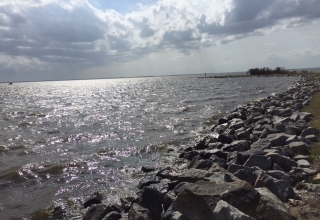
The Merger of Reality and Fantasy: There is the related matter of somehow discerning between reality and image-production (“virtual reality”) and how we integrate the two when we are wandering through the world receiving both kinds of information at the same time. We see this merger dramatically (and often humorously) conveyed in the satirical movie, Being There. In this movie, Peter Sellars portrays a man who had grown up in isolation, having done nothing during the day but watch television. Suddenly he is forced to enter the “real world.” He brings his channel changer with him. When encountering several men who threaten him, Sellars clicks the channel changer, hoping that these men will go away. Imagine what it would be like if this movie were made today. Sellars’ world would be composed of Internet images and he would be clicking on a mouse to escape threat.
This challenge of reality merging with fantasy clearly relates to what we have written about the metaverse and deep fake technology. Young people around the world are already finding it much more interesting to date an avatar (a person who is able to digitally transform themselves). They never have to actually meet their “date”. And what do we do about the building of relationships with a “machine” that knows more about what we want than anyone with whom we are affiliating. As in the movie (“Her”) there might be more to gain from an intimate relationship with a machine than from an intimate relationship with a person. There is a perspective in psychodynamic psychology known as “object relations theory.” This theory might be taking on new relevance as related to the formation of relationships with technological “objects” (rather than real or fantasized people).
One of the dimensions of psychology that relates closely to this blurring of lines concerns the locus of control. We hope to control at least certain aspects of our life (a predisposition toward an internal locus of control) but know that much of the world around us remains out of our control (a recognition of external locus of control). We no longer live in a small village where we know everyone and have some say about what is happening in this village. We might not have had much control over the weather (hence must play nice with the gods), but we could at least influence our neighbors. Now, with little control over many matters in our lives, do we find ourselves pulled toward a world of fantasy that we can control? Are the digital games we (or at least our children) play becoming more relevant than the real world in which we live? Do we build communities in a fantastical world because we can’t build communities in the world we actually inhabit?
What do we do about this pull toward fantasy and about intimate relationships with machines rather than people? How do we deal with a real world that seems to be beyond our control – or even our influence?
Download Article













